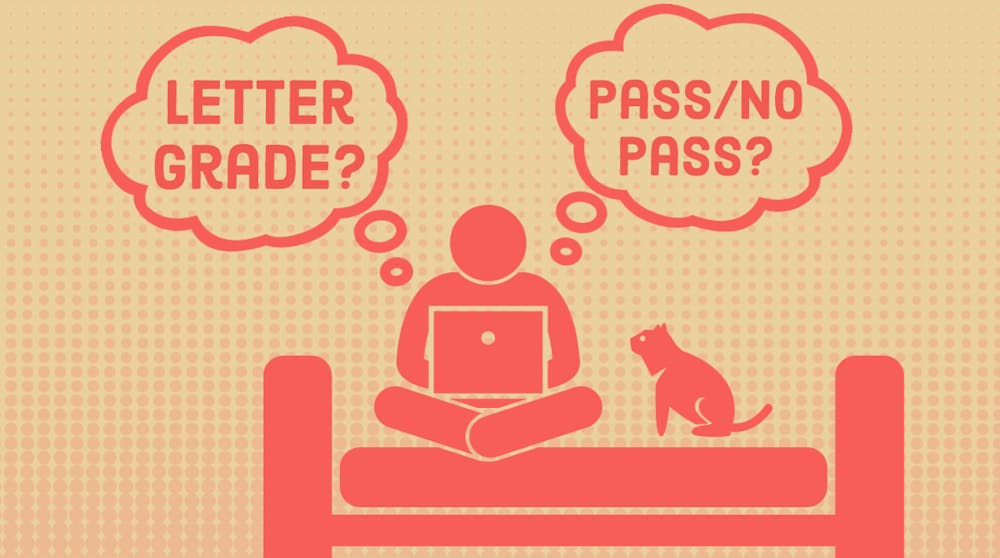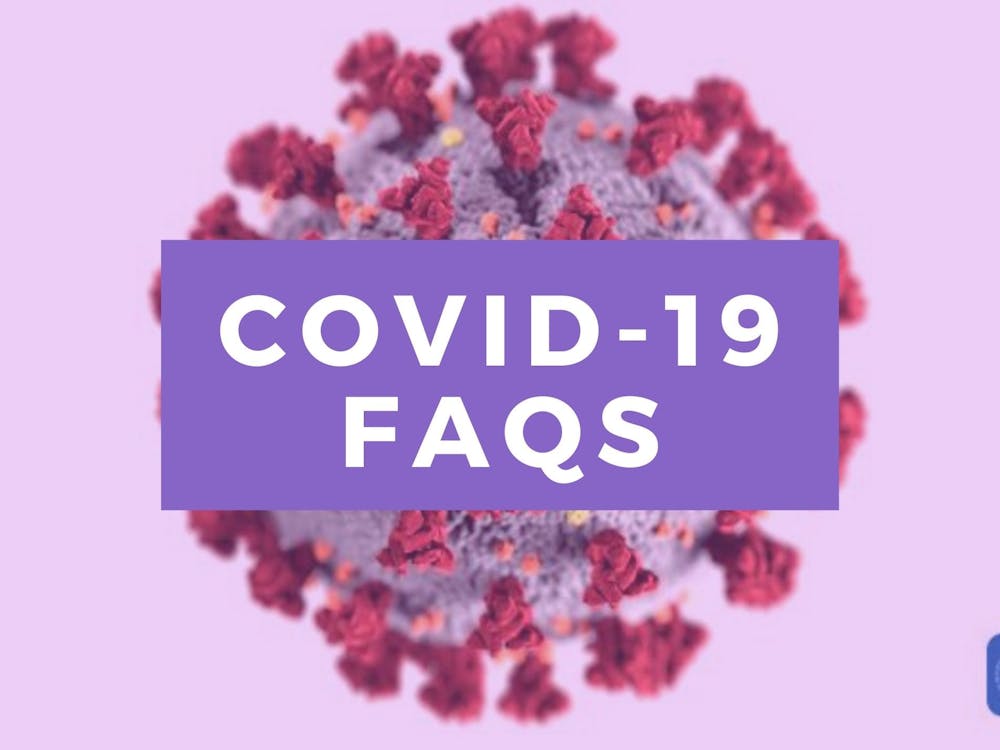University of Portland Provost Tom Greene announced in an email to students Friday afternoon that amid the COVID-19 pandemic, the university would expand the pass/no pass option to classes that are not major requirements or pre-requisites for other classes. The change means that electives, all university core classes, and certain classes required by different schools may be taken pass/no pass. Typically, only electives may be taken pass/no pass.
When students attempt courses pass/no pass, they receive academic credit for the courses they pass (courses in which they earn a grade ranging from D- to A), but those classes will not be used to calculate grade point average.
Associate Provost Elise Moentmann wrote in an email to The Beacon that while this option exists, most graduate, medical, and law schools do not accept courses with a pass grade, especially in courses that may be prerequisites for admissions, as they want to see letter grades.
Normally, courses taken pass/no pass also do not count for completion of university core, major or other graduation requirements. In usual circumstances, students may take up to three classes pass/no pass during their undergraduate careers, a regulation that has been waived this year. If students are not graduating this semester, courses taken pass/no pass this semester would not be included in the overall total of three courses moving forward.
The deadline to switch courses to pass/no pass for the spring 2020 semester has also been extended to April 15, the latest it has ever been, Moentmann said. Administration has also asked professors to be as flexible as possible on deadlines, especially those that occurred as students left residence halls and had to move home, she added.
Students wishing to change classes to pass/no pass must contact their respective program counselors and fill out the pass/no pass exception form on the Registrar-Student page at pilots.up.edu.
Receiving a “pass” instead of a letter grade does not impact students’ financial aid eligibility, as they still earn credits for the course. “No pass” courses do not receive credit, and students should consult the Financial Aid Handbook to understand the financial aid satisfactory academic progress policy, the provost’s email said.
Students who are under financial aid warning (those who have not met the GPA minimum and/or completed the minimum number of credits for financial aid) in the spring 2020 semester and do not meet financial aid satisfactory academic progress policy components will be on financial aid suspension for the next semester.
These students are not eligible for financial aid during the upcoming semester, but they may appeal to receive their aid. Extenuating circumstances surrounding the COVID-19 pandemic would certainly constitute a valid rationale for a student to appeal a suspension of their financial aid, the email said.
The announcement from the Office of the Provost arrives after a petition to offer pass/no pass classes for the spring 2020 semester has garnered over 1,300 signatures since March 22. The petition asks for the option to make courses pass/no pass without the usual stipulation that pass/no pass courses cannot count toward completion of majors, the university core, or other graduation requirements.
Moentmann said that while the Office of the Provost always welcomes student input, the Office also considered information faculty and deans relayed from students, data from the Academic and Student Affairs Divisions, the Academic Senate, the Provost’s Council and comparable universities’ decisions.
Junior computer science major Michael Antkiewicz started the petition after talking to a friend who attends Vanderbilt University. The Tennessee school has allowed “classes in any category of degree requirement to be taken pass/fail, even if not typically allowed under normal circumstances” and has suspended “most policies that surround pass/fail enrollments.” Vanderbilt also extended the deadline to switch classes to pass/fail.
“Nobody I’ve talked to has said their life has gotten any easier since this pandemic started,” Antkiewicz said. “It’s hard to focus on school when there are these huge, serious, anxiety-inducing problems. It’s really not fair to most people how this pandemic will reflect on their GPAs and how uneven of a playing field people are on right now.”
Antkiewicz explained that he had talked to a number of UP students who described obstacles to attending class and studying in their homes. Some students have younger siblings who may distract them or need care, others lack ideal study environments in their homes, and others do not have access to reliable technology and wi-fi, he said. Students may also be stressed due to having parents or family members who recently lost their jobs or are at risk of contracting the coronavirus, Antkiewicz said.
Sophomore sociology major Francisco Franco signed the petition due to how much they think UP education has changed since transitioning online and the stress it adds on students’ ability to perform academically.
“The quality of education is not the same, and it’s not what I signed up for. I appreciate that teachers are making the effort, and they really care about us, but it’s so much to deal with on such a short notice,” Franco said. “Online just isn’t really the best way to learn, which is why a lot of teachers (normally) have policies of not being on your laptops and devices in class. It just doesn’t translate the emotional and physical value that comes from person-to-person interaction.”
While Antkiewicz and the administration were in contact, he said that these changes were not what he was hoping to accomplish through the petition.
“The administration disappointed me,” Antkiewicz said. “(These changes are) not the point, we want everyone to be helped.”
Dora Totoian is a reporter and the Opinion editor for The Beacon. She can be reached totoian20@up.edu.








